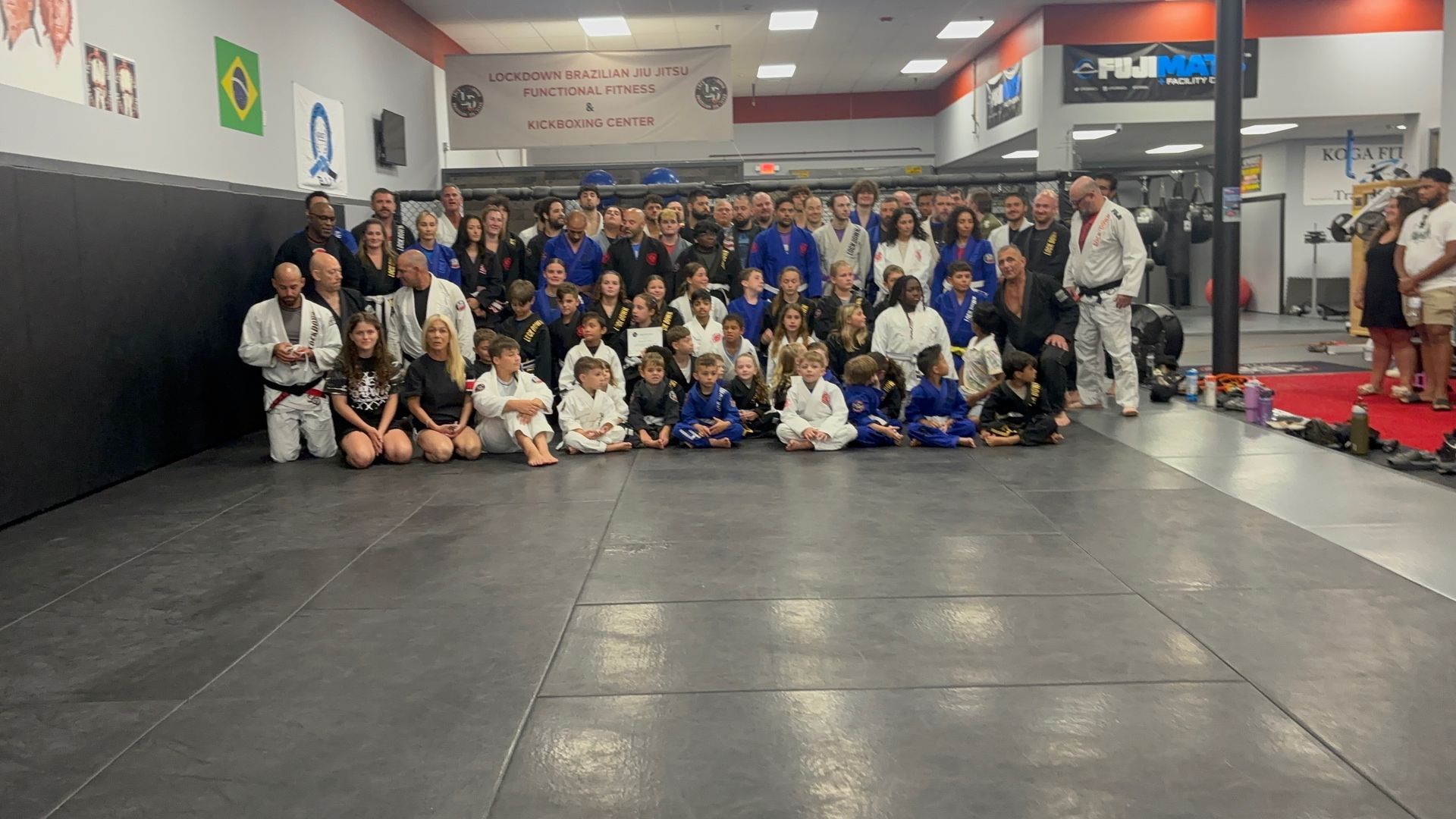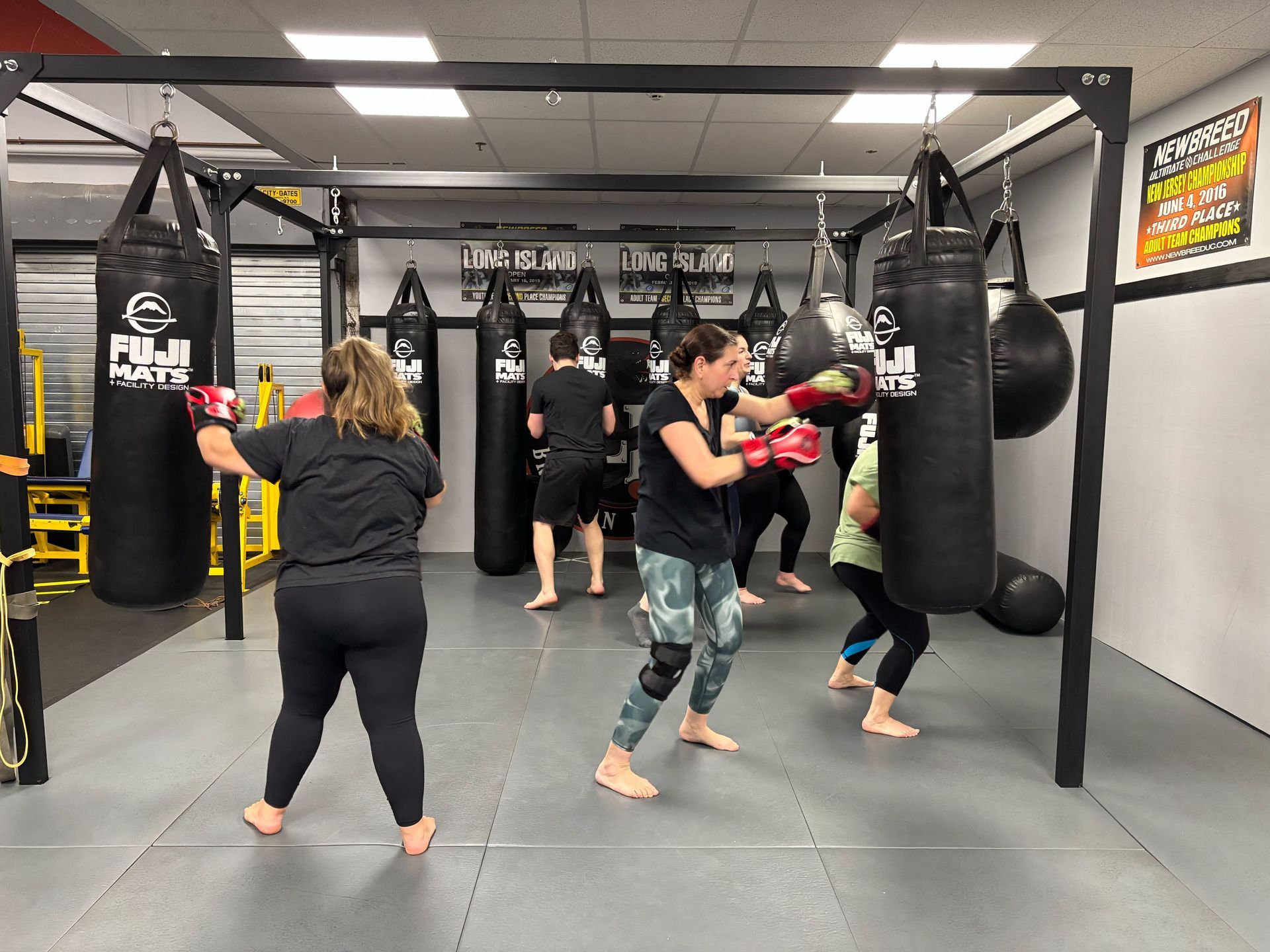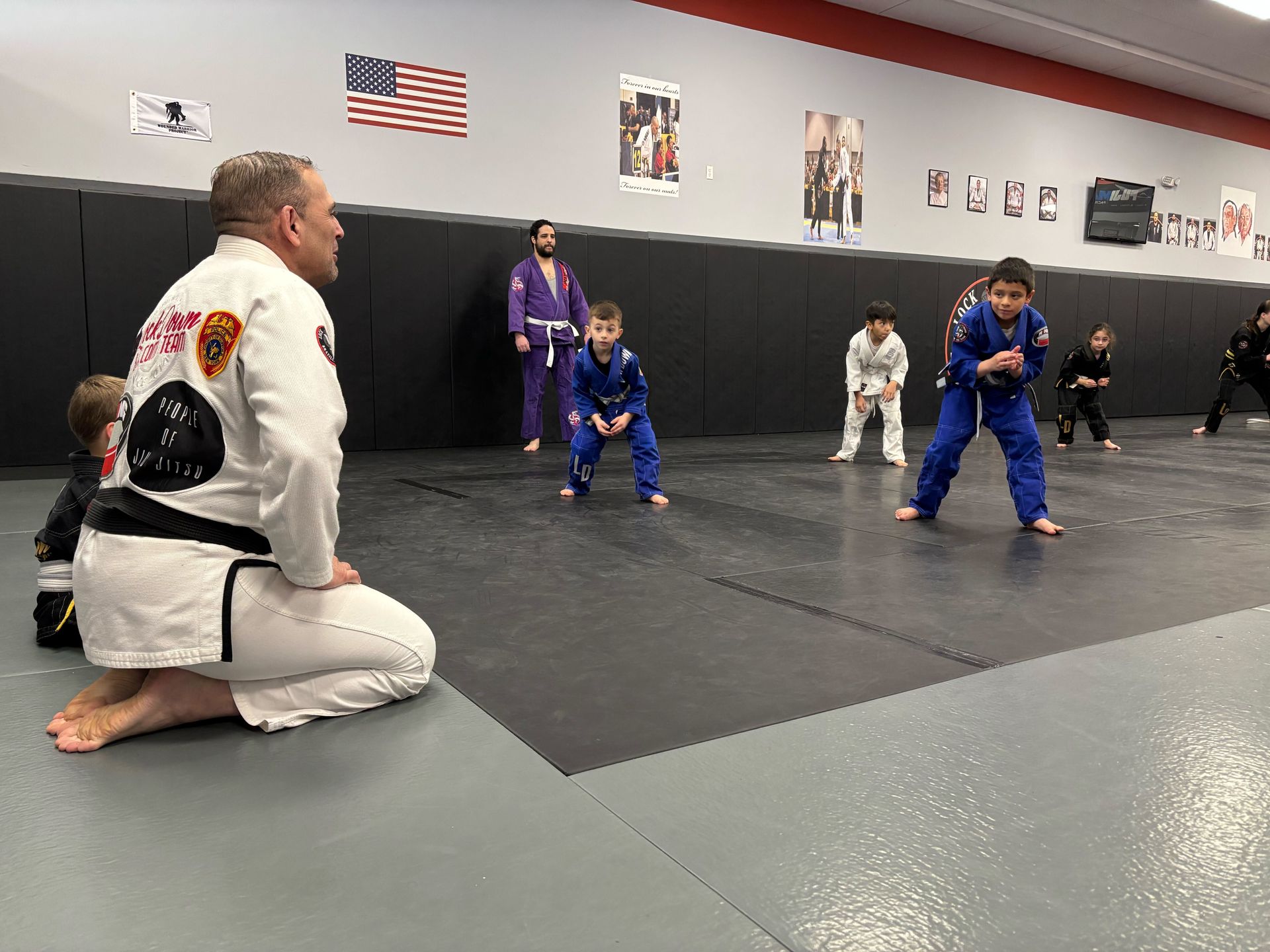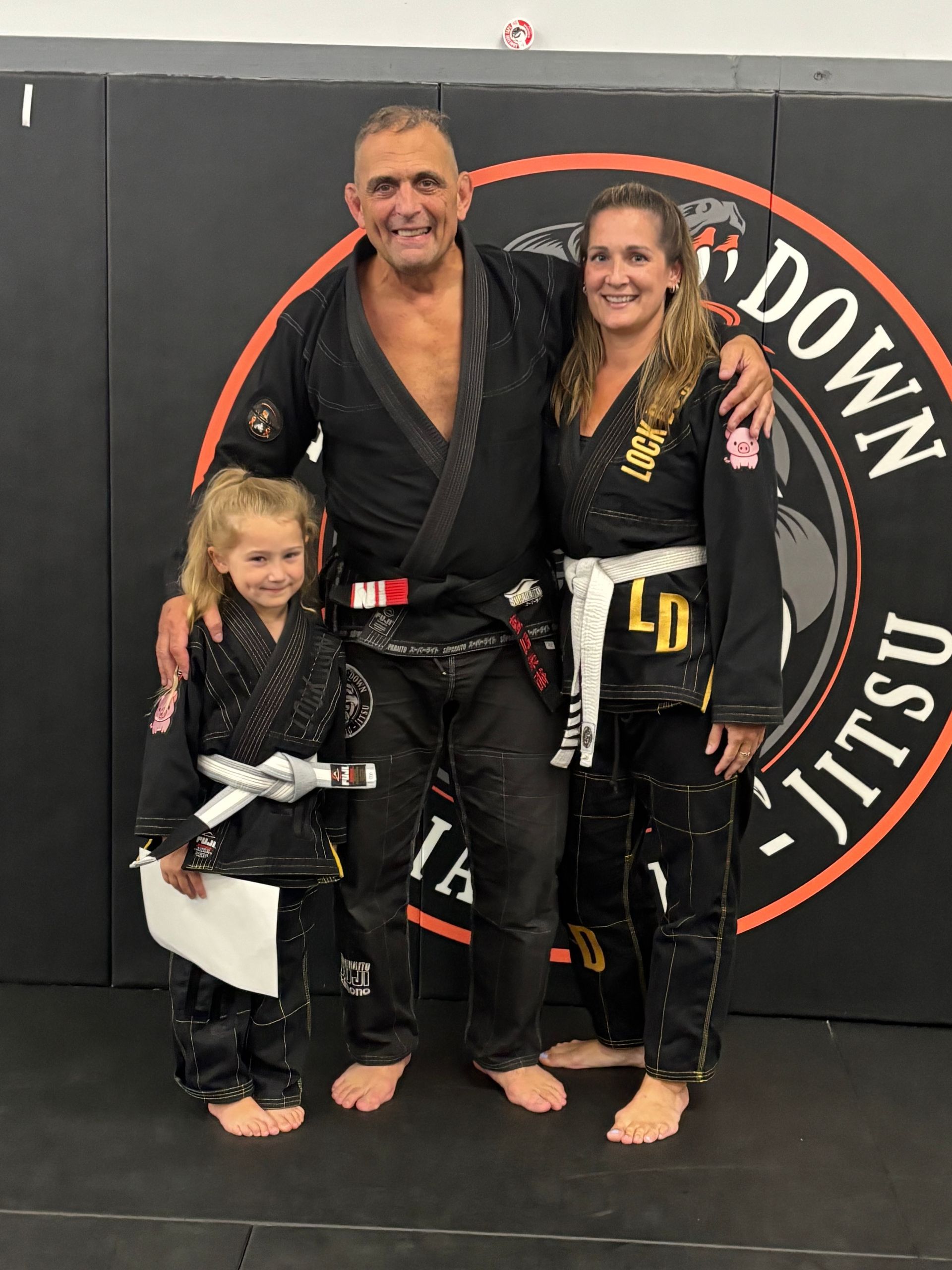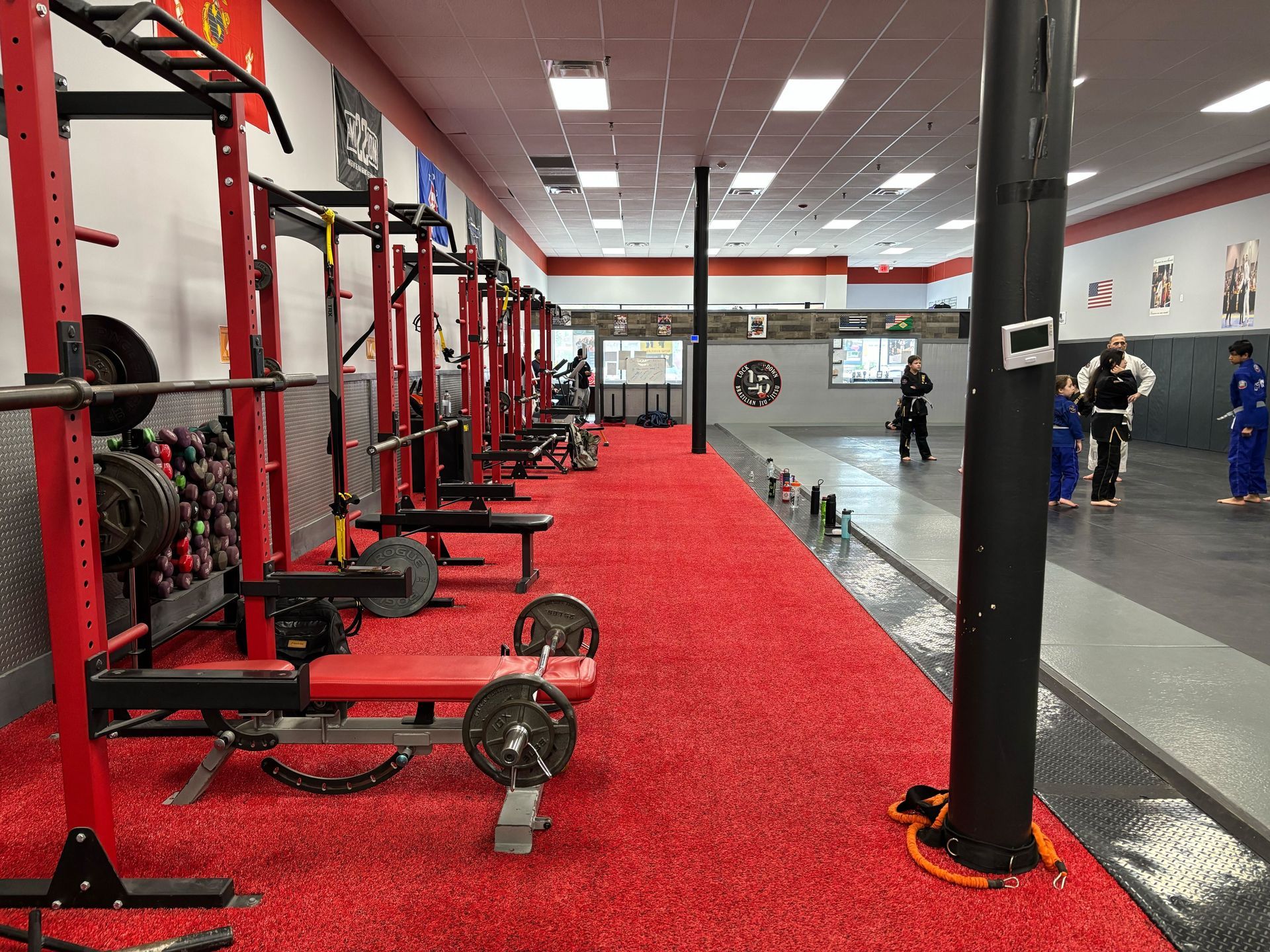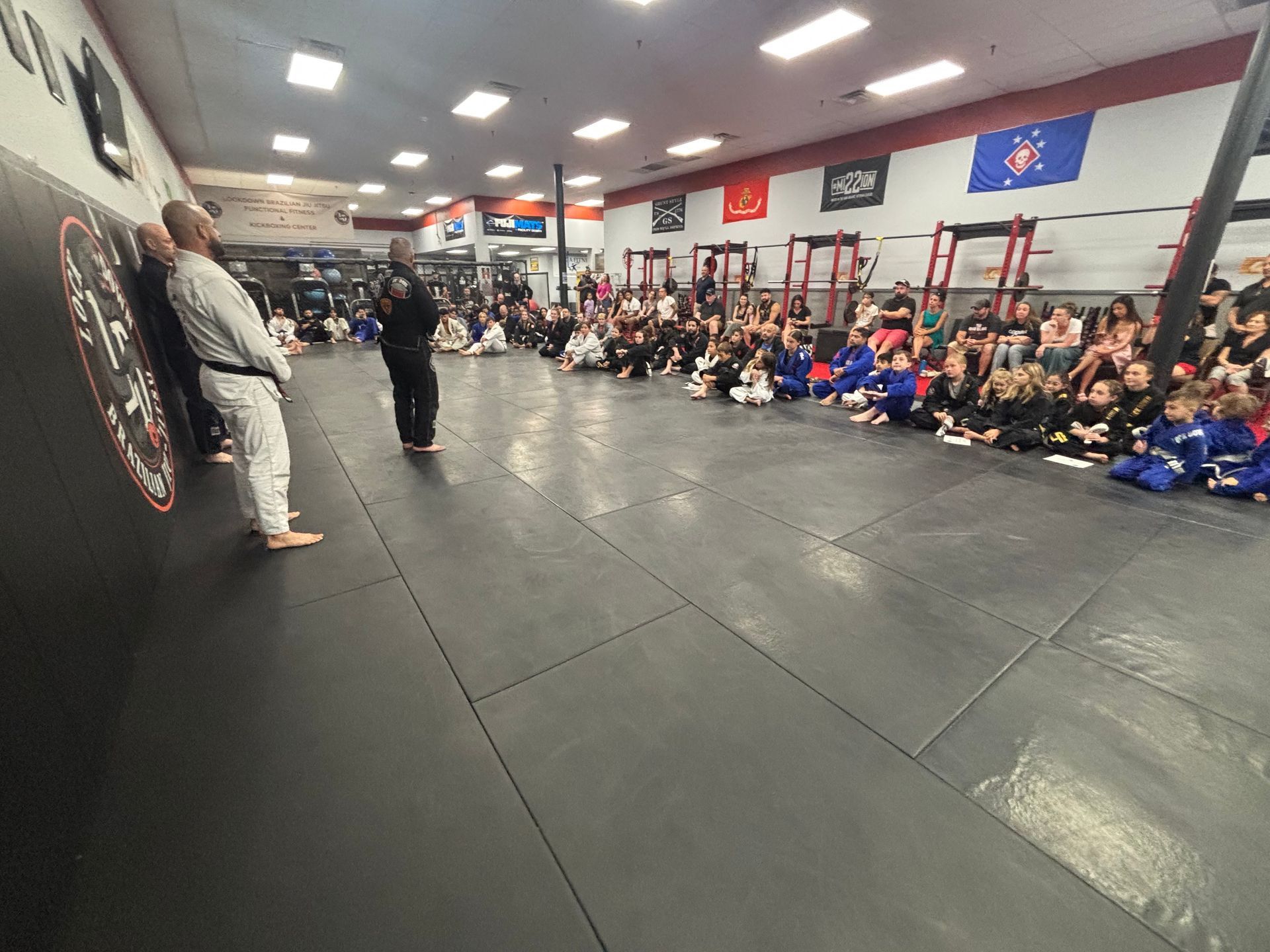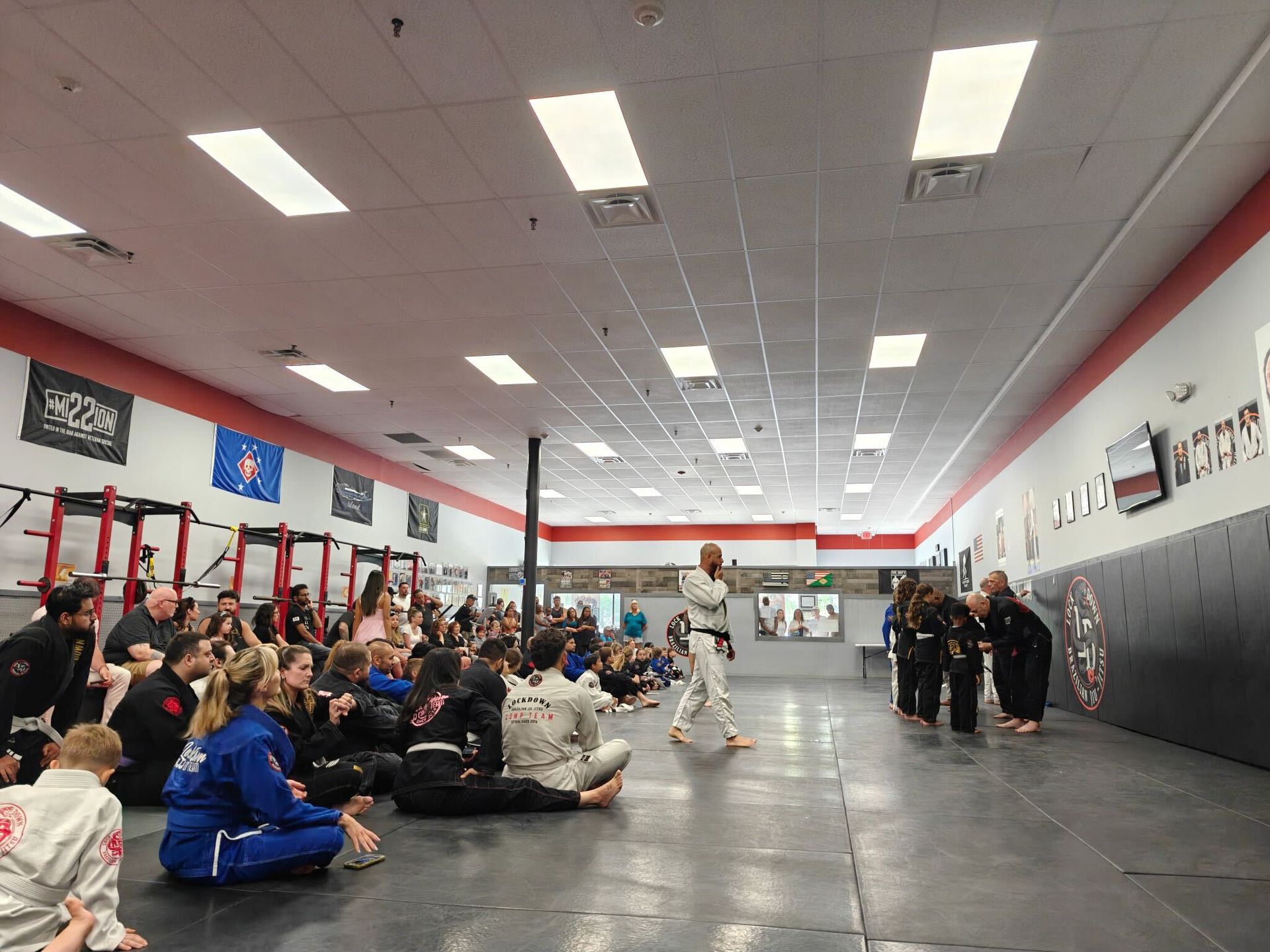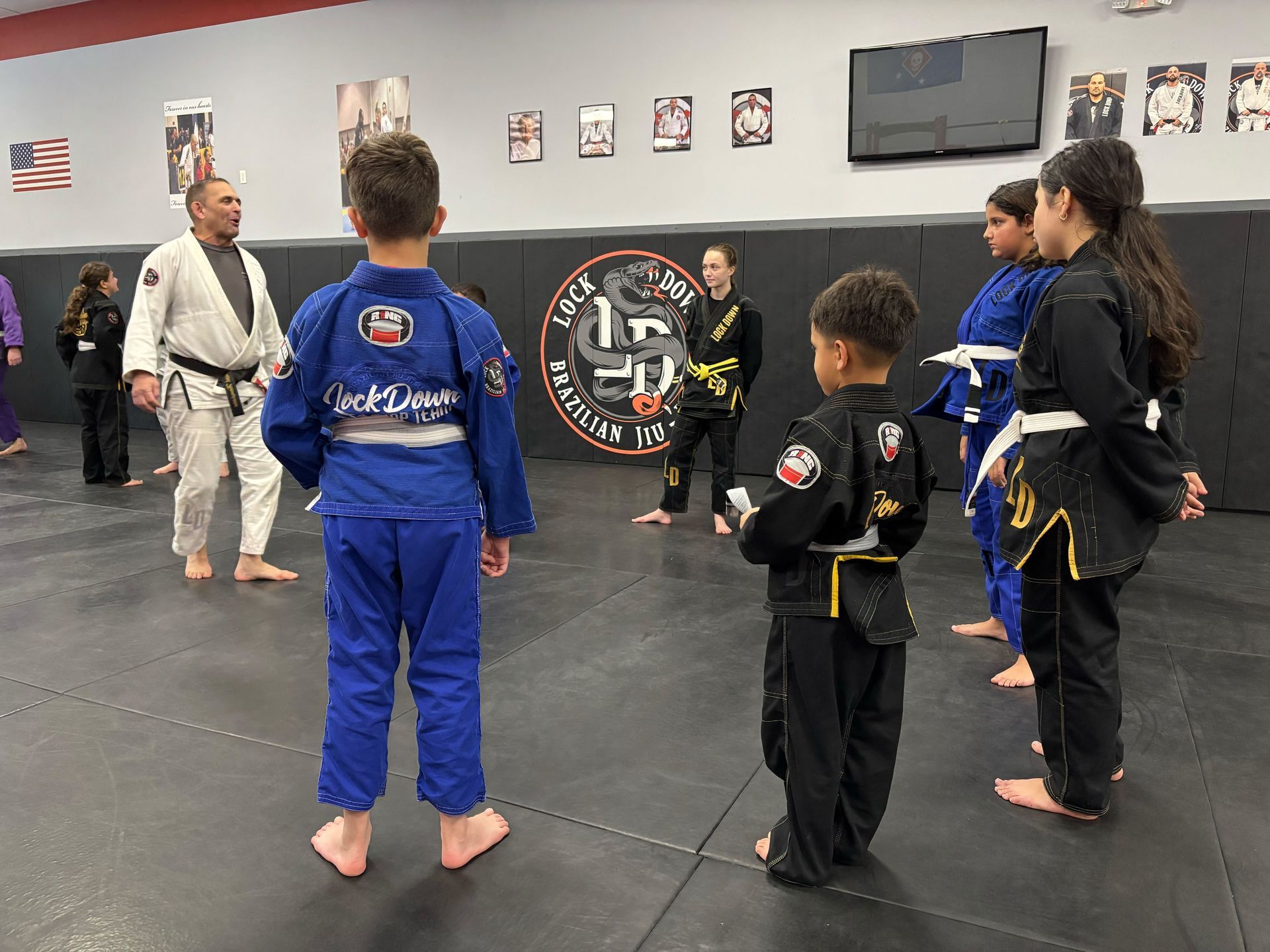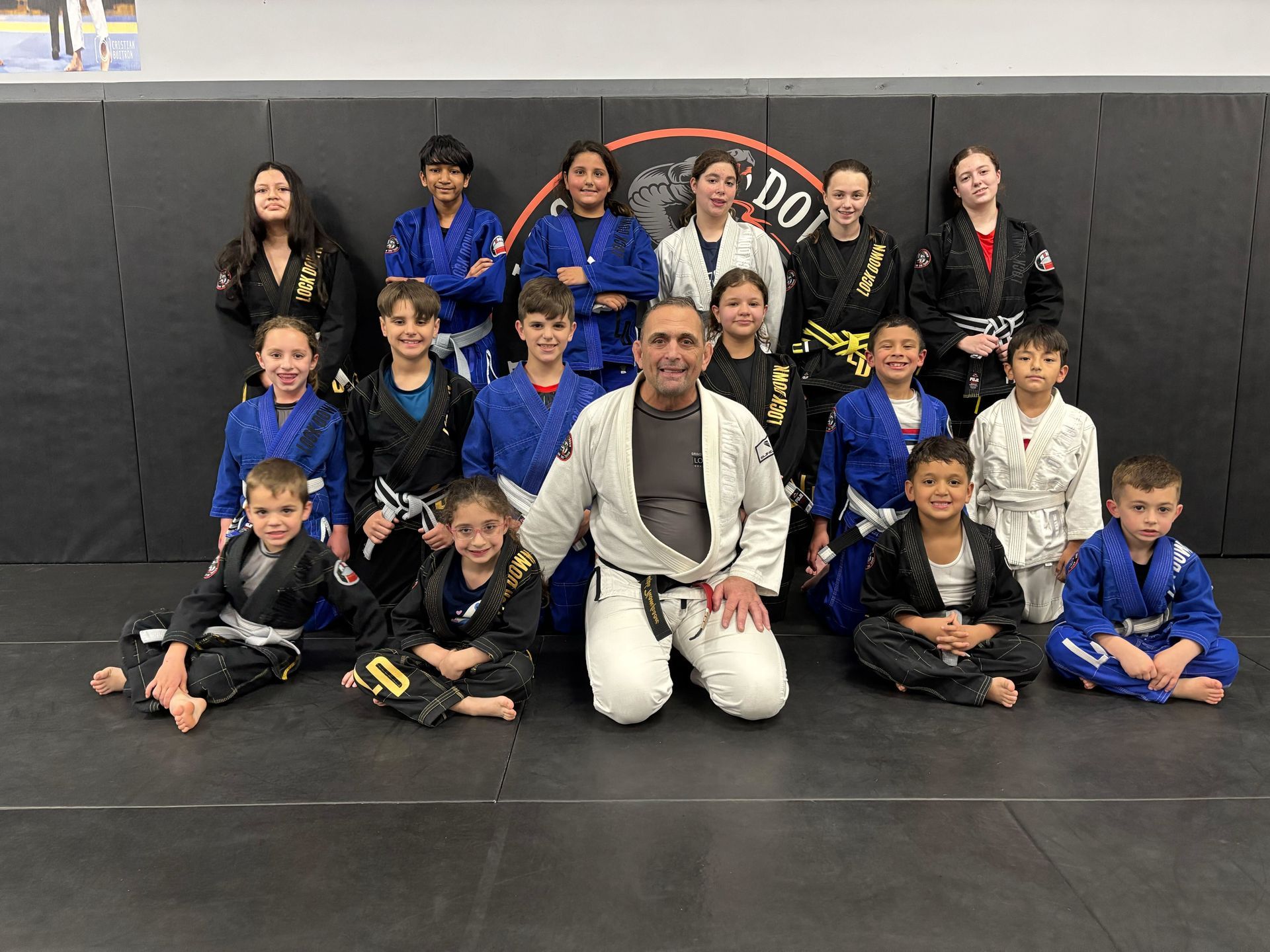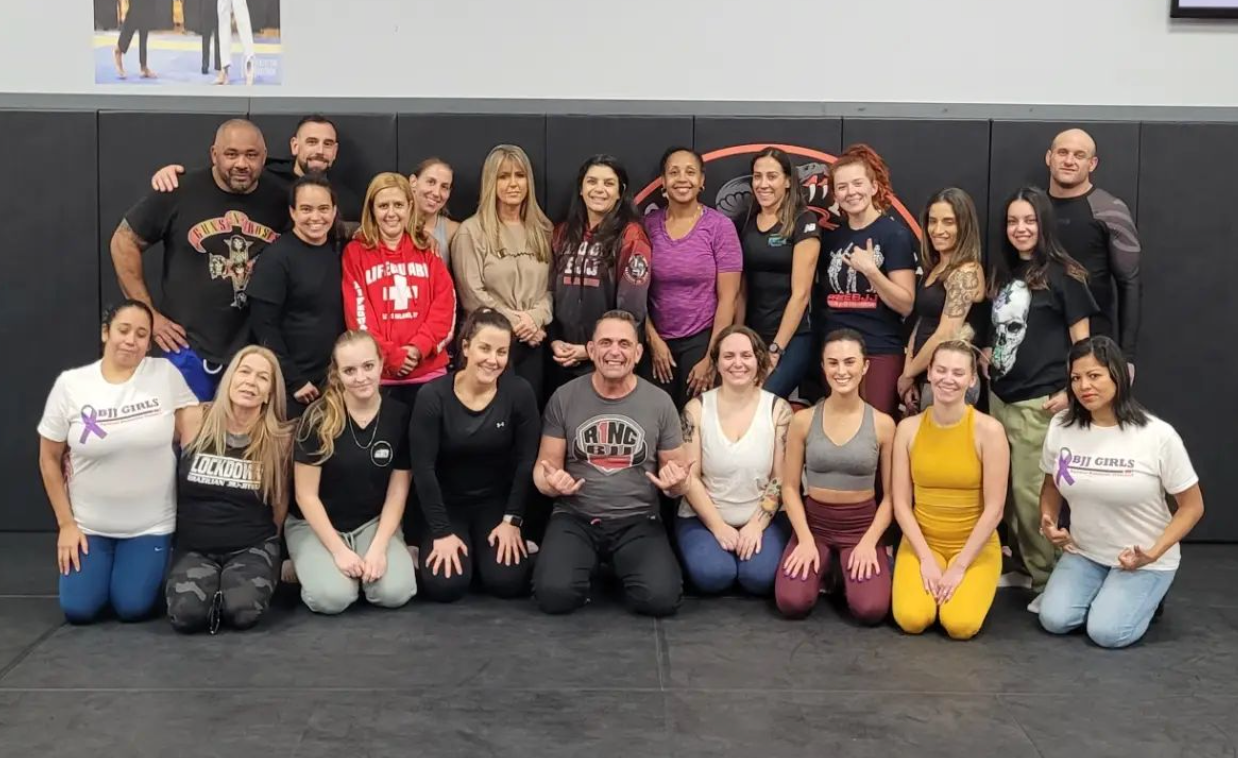Martial arts is more than just physical training—it's a holistic practice that instills critical life skills, including respect and courtesy.
At the heart of martial arts are principles that extend far beyond the dojo, helping individuals of all ages build character, self-discipline, and positive social interactions. This article will explore how martial arts, particularly those taught at Lockdown BJJ School, teaches respect and courtesy, shaping students into not just skilled practitioners, but also respectful and courteous individuals.
What Are Martial Arts?
Martial arts encompass a wide range of practices that originated as forms of self-defense and combat. These arts include Brazilian Jiu-Jitsu (BJJ), Karate, Taekwondo, Judo, and many others, each with its unique techniques and philosophies. While the physical aspect of martial arts involves training in strikes, grappling, and other combat techniques, the true essence lies in the mental and ethical codes that underpin these practices.
Core Values in Martial Arts
Respect and courtesy are foundational values in all martial arts. Whether it's bowing to an opponent, listening attentively to an instructor, or demonstrating humility, these practices instill a sense of respect for oneself, others, and the art itself. Courtesy in martial arts is not just about politeness; it’s about understanding and practicing the broader concepts of empathy, discipline, and humility.
The Role of Respect in Martial Arts
Understanding Respect in Martial Arts
Respect in martial arts is multifaceted. It includes respect for one's self, respect for the opponents, respect for the instructors, and respect for the dojo. In martial arts, respect is often demonstrated through actions such as bowing upon entering the dojo or stepping onto the mat, acknowledging the skill and effort of training partners, and adhering to the rules and etiquette of the practice.
How Respect is Practiced in Martial Arts
Practicing respect in martial arts involves specific actions and behaviors. Bowing, a common practice in many martial arts, signifies respect and acknowledgment. Listening attentively to instructors, following directions without hesitation, and respecting the dojo's rules are all ways students embody respect in their training. This respect extends beyond the dojo, teaching students to respect teachers, parents, and peers in everyday life.
The Importance of Hierarchy and Rank
Martial arts often follow a hierarchical structure, with belts or ranks signifying a practitioner's level of skill and experience. This hierarchy teaches students to respect those who have more experience and to value the process of learning and growth. Understanding and respecting this structure encourages humility and motivates students to work diligently to progress in their own journey.
Courtesy as a Pillar of Martial Arts
Definition of Courtesy in Martial Arts
Courtesy in martial arts involves demonstrating kindness, respect, and consideration for others. It’s about recognizing the importance of every individual, whether a senior instructor or a beginner student. Courtesy is evident in how students interact with one another, offering help, encouragement, and support throughout their training.
Examples of Courtesy in Martial Arts Training
Examples of courtesy in martial arts include helping a new student learn a technique, congratulating a training partner after a match, and showing patience and understanding when others make mistakes. Courtesy also means showing restraint and control, both in practice and in sparring, to ensure the safety and comfort of all participants.
The Impact of Courtesy on Personal Development
Practicing courtesy in martial arts significantly impacts personal development. It helps individuals become more empathetic, considerate, and socially aware. As students learn to treat others with kindness and respect, these values become ingrained in their character, positively influencing how they interact with people outside of martial arts as well.
How Martial Arts Instructors Instill Respect and Courtesy
Role of Instructors as Role Models
Instructors play a crucial role in teaching respect and courtesy by serving as role models. They lead by example, demonstrating these values in every interaction with students. Instructors emphasize the importance of respect and courtesy, not just as part of martial arts training but as essential qualities that will benefit students in all aspects of their lives.
Structured Lessons and Rituals
Martial arts training sessions are often structured with specific rituals and routines designed to instill discipline and respect. From the formal bow at the beginning and end of each class to the practice of lining up according to rank, these rituals reinforce the values of respect and courtesy. They create an environment where students can learn and grow while feeling valued and respected.
Discipline Through Repetition and Routine
Discipline is a key component of martial arts, and it’s taught through repetition and routine. By consistently practicing the etiquette of martial arts, such as bowing and addressing instructors properly, students develop habits that extend beyond the dojo. These practices teach them to approach all aspects of life with respect and courtesy.
Benefits of Learning Respect and Courtesy Through Martial Arts
Improved Self-Discipline and Self-Control
Respect and courtesy are closely linked to self-discipline and self-control. Through martial arts, students learn to control their impulses, focus their energy positively, and behave respectfully towards others. This self-discipline extends into other areas of life, helping individuals manage their emotions, make better decisions, and act with integrity.
Enhanced Social Skills and Interpersonal Relationships
The skills learned through martial arts, such as listening, empathy, and cooperation, enhance social skills and improve interpersonal relationships. Students learn to communicate effectively, resolve conflicts respectfully, and build positive connections with others. These skills are invaluable in both personal and professional settings.
Building a Positive and Inclusive Community
Martial arts schools like Lockdown BJJ foster a sense of community built on respect and courtesy. This inclusive environment encourages students of all backgrounds to train together, support each other, and grow as individuals. By emphasizing respect and courtesy, martial arts create a welcoming space where everyone feels valued and supported.
Case Studies: Stories from Lockdown BJJ School
Testimonials from Students and Parents
Students and parents at Lockdown BJJ often share stories of how martial arts have positively impacted their lives. One common theme is the improvement in respect and courtesy observed in students, both inside and outside the dojo. Parents report that their children are more respectful at home and in school, thanks to the lessons learned in martial arts.
Success Stories of Personal Growth
Lockdown BJJ has numerous success stories where students have demonstrated significant personal growth through martial arts. For example, students who initially struggled with anger or impulsivity have learned to manage their emotions and act with respect and courtesy, not just in the dojo but in all areas of life.
Common Misconceptions About Martial Arts and Respect
Debunking Myths About Martial Arts Aggressiveness
One common misconception about martial arts is that it promotes aggression. In reality, martial arts emphasize self-control, respect, and courtesy. The focus is on learning to manage one's own behavior and treating others with respect, not on promoting violence or aggression.
Why Respect and Courtesy Matter in Martial Arts Over Competitiveness
While martial arts can be competitive, respect and courtesy are prioritized over winning at all costs. Instructors at Lockdown BJJ emphasize the importance of humility, teaching students that the journey of self-improvement and respect for others is more valuable than any victory. This approach helps students maintain a healthy perspective on competition and success.
Final Thoughts
Martial arts is not just about physical prowess; it's about building character through respect and courtesy. From structured rituals to the daily practice of empathy and humility, martial arts provide a comprehensive approach to personal development. These lessons extend beyond the dojo, influencing how students interact with others and approach challenges in all areas of life.
Lockdown BJJ School is committed to teaching martial arts in a way that emphasizes respect and courtesy. By joining Lockdown BJJ, students will not only learn effective martial arts techniques but also develop essential life skills that will serve them well in every aspect of their lives. We invite you to start your journey with us and experience the transformative power of martial arts.

